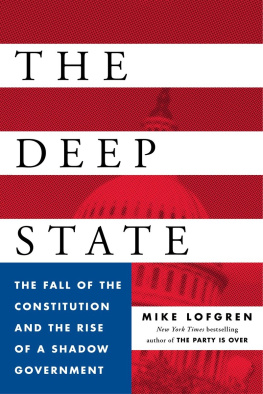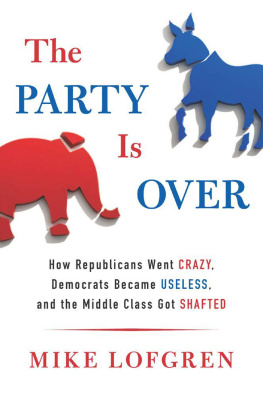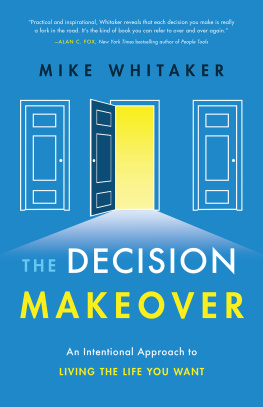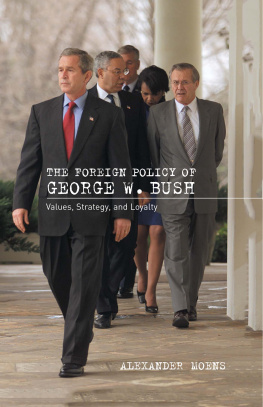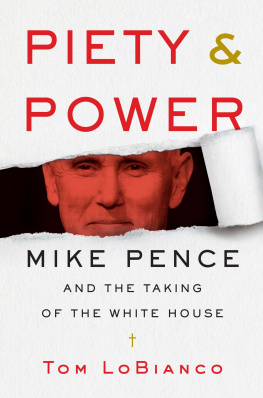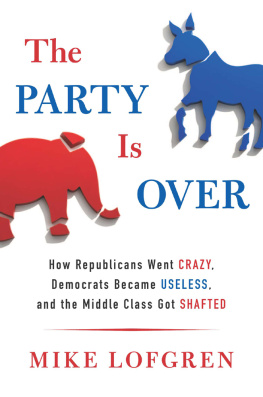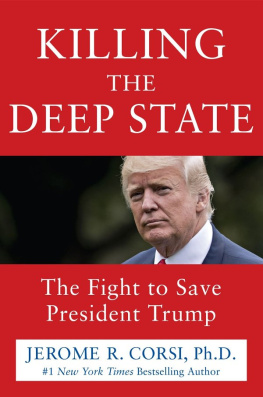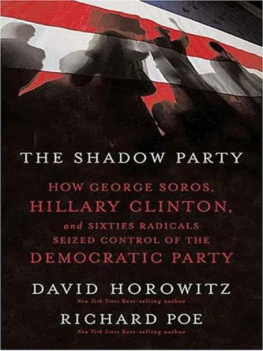Mike Lofgren - The deep state: the fall of the constitution and the rise of a shadow government
Here you can read online Mike Lofgren - The deep state: the fall of the constitution and the rise of a shadow government full text of the book (entire story) in english for free. Download pdf and epub, get meaning, cover and reviews about this ebook. year: 2016, publisher: Viking;Penguin Publishing Group, genre: Politics. Description of the work, (preface) as well as reviews are available. Best literature library LitArk.com created for fans of good reading and offers a wide selection of genres:
Romance novel
Science fiction
Adventure
Detective
Science
History
Home and family
Prose
Art
Politics
Computer
Non-fiction
Religion
Business
Children
Humor
Choose a favorite category and find really read worthwhile books. Enjoy immersion in the world of imagination, feel the emotions of the characters or learn something new for yourself, make an fascinating discovery.
- Book:The deep state: the fall of the constitution and the rise of a shadow government
- Author:
- Publisher:Viking;Penguin Publishing Group
- Genre:
- Year:2016
- Rating:5 / 5
- Favourites:Add to favourites
- Your mark:
The deep state: the fall of the constitution and the rise of a shadow government: summary, description and annotation
We offer to read an annotation, description, summary or preface (depends on what the author of the book "The deep state: the fall of the constitution and the rise of a shadow government" wrote himself). If you haven't found the necessary information about the book — write in the comments, we will try to find it.
An acerbic, no holds barred indictment of business as usual in Washington, DC--where our elected leaders provide a fig leaf for those who really hold the levers of power--by a 28-year veteran of the Hill, the bestselling author of The Party Is Over Have you ever noticed that behind all the mud-slinging and invective there isnt much difference between the parties? For all of his big talk and promises of change, Obama is basically Bush lite. And Hillary--or Jeb--will be more of the same. We spend ten times more on the political circus leading up to elections than any other country, but what are we getting for all of that money? The truth, as Mike Lofgren reveals in this devastating takedown of beltway business, is that our elected leaders provide a fig leaf for those who really hold the levers of power, the unelected functionaries of our ever-growing bureaucracies who decide Americas defense, intelligence, and foreign policy and the corporate titans who control them. If it sounds like House of Cards its because there is more truth to that than you might care to believe. Mike Lofgren draws on his three decades on the Hill to take you behind the scenes and map out where ower is really held in Washington, in the bowels of what he calls the deep state.-- Read more...
Abstract: The New York Times bestselling author of The Party Is Over delivers a no-holds-barred, House of Cards-style expose of who really wields power in Washington. Mike Lofgren is back with a book perfectly pitched for the frenzied circus of the primaries. His argument this time is that for all of the backstabbing and money grubbing of the campaign season, the politicians we elect have as little ability to shift policy as Communist party apparatchiks. Welcome to Mike Lofgrens Washington, D.C.--a This Town, where the political theater that is endlessly tweeted and blogged about has nothing to do with actual decision making. The real work gets done behind the scenes by invisible bureaucrats working for the vast web of agencies that actually dictate our foreign policy, defense posture, and security decisions. Have you ever wondered why Obamas policies look so much like Bushs? Seek no further: Hillary v. Jeb is just window dressing. Actual power lies in the Deep State, Washingtons shadowy power elite, in the pockets of corporate interests and dependent on the moguls of Silicon Valley, whose data-collecting systems enable the U.S. government to spy on our every move, swipe, and click. Drawing on insider knowledge gleaned in his three decades on the Hill, Lofgren offers a provocative wake-up call to Americans and urges them to fight to reinstate the basic premise of the Constitution--
An acerbic, no holds barred indictment of business as usual in Washington, DC--where our elected leaders provide a fig leaf for those who really hold the levers of power--by a 28-year veteran of the Hill, the bestselling author of The Party Is Over Have you ever noticed that behind all the mud-slinging and invective there isnt much difference between the parties? For all of his big talk and promises of change, Obama is basically Bush lite. And Hillary--or Jeb--will be more of the same. We spend ten times more on the political circus leading up to elections than any other country, but what are we getting for all of that money? The truth, as Mike Lofgren reveals in this devastating takedown of beltway business, is that our elected leaders provide a fig leaf for those who really hold the levers of power, the unelected functionaries of our ever-growing bureaucracies who decide Americas defense, intelligence, and foreign policy and the corporate titans who control them. If it sounds like House of Cards its because there is more truth to that than you might care to believe. Mike Lofgren draws on his three decades on the Hill to take you behind the scenes and map out where ower is really held in Washington, in the bowels of what he calls the deep state.
Mike Lofgren: author's other books
Who wrote The deep state: the fall of the constitution and the rise of a shadow government? Find out the surname, the name of the author of the book and a list of all author's works by series.

